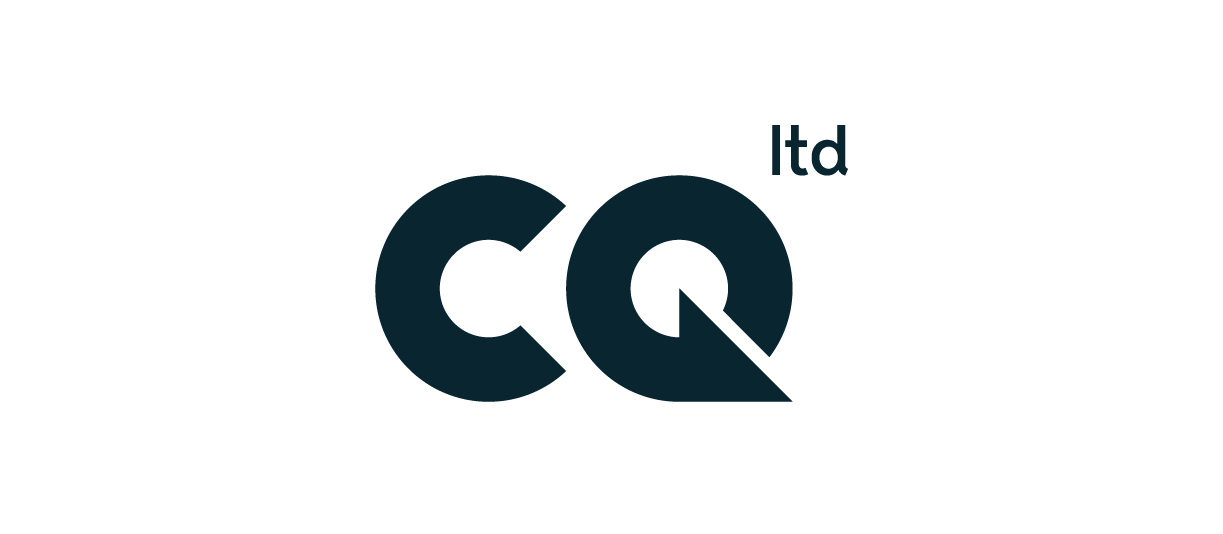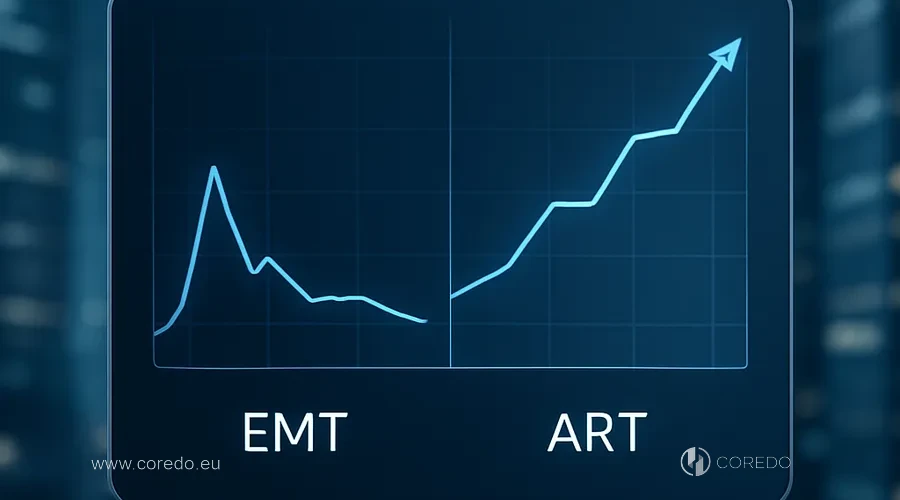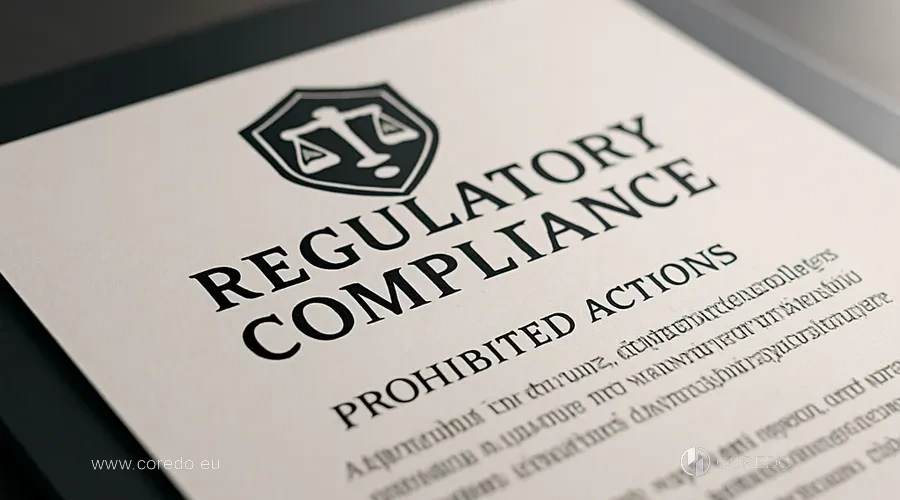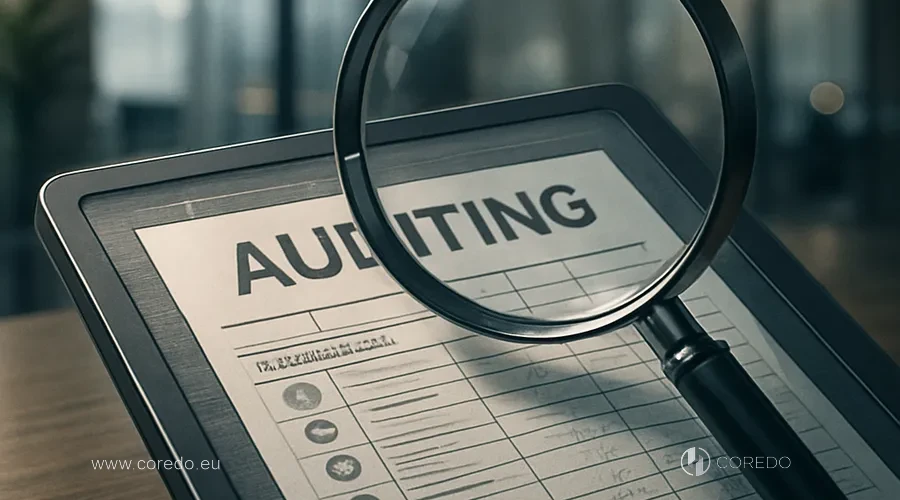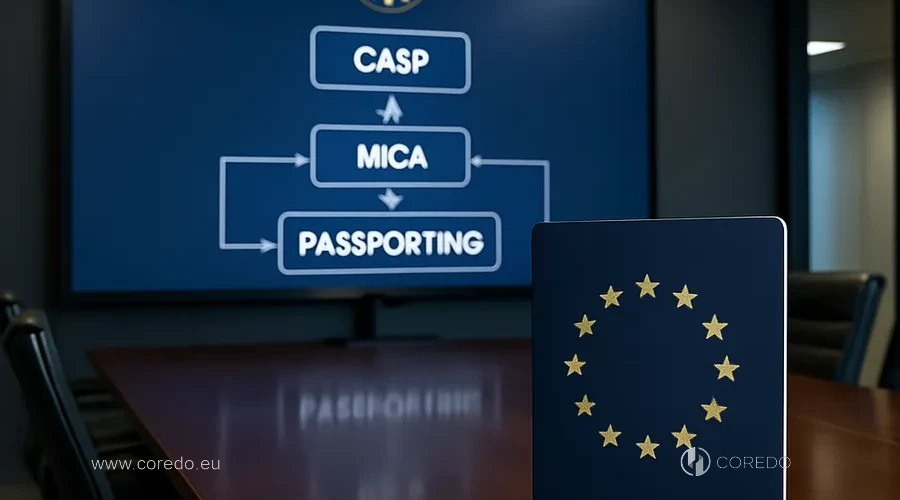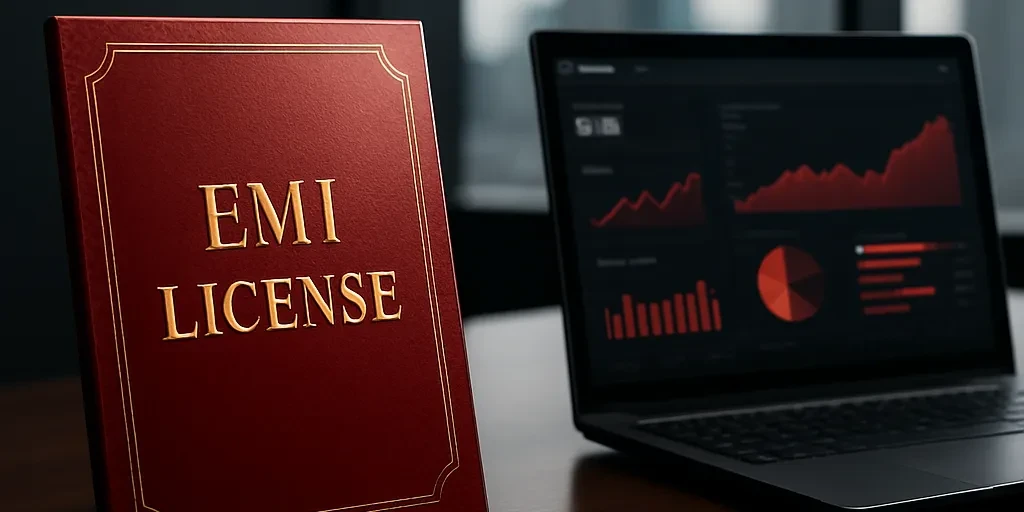When the founder of a fintech project comes to me with the question: “In which country is it best to obtain an EMI license and how can this be done without fatal mistakes?”, I always start not with the country, but with the business model. It is the business model that determines where you can operate sustainably, with understandable regulatory risks and a predictable ROI.
Over years of COREDO‘s work in Europe, Asia and the CIS, the team has taken clients through the entire journey: from the first idea “I want my own EMI license in the EU” to functioning payment institutions with passporting across the EEA, audits to international standards and a well-thought-out AML function. In this article I will distill that experience into a practical guide: how to choose a jurisdiction, which requirements are actually painful in practice, where the boundaries of regulatory risk appetite lie and how to reduce the likelihood of rejection at launch.
EMI license in the EU: what you need to know
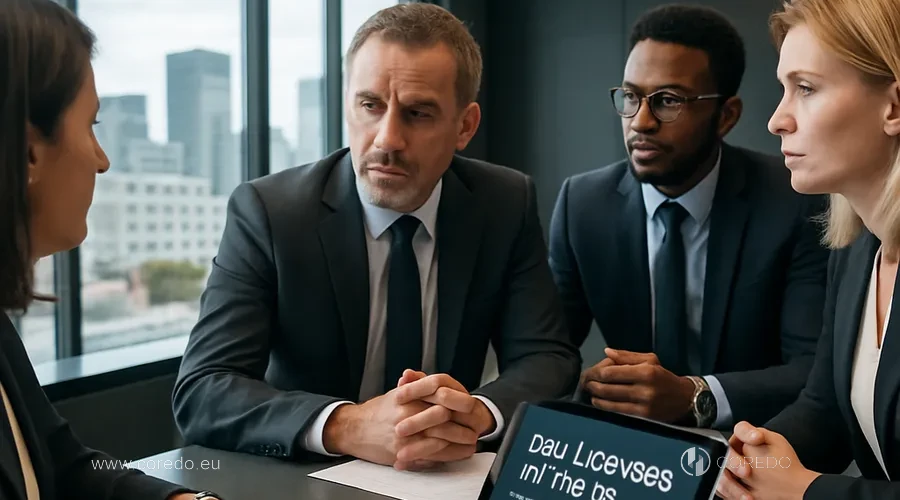
EMI license in Europe: this is permission to operate as an issuer of electronic money and to provide payment services based on the PSD2 and EMD2 directives. Essentially, an EMI license in the EU allows you to:
- issue electronic money (wallet balances, prepaid solutions, stored value);
- open and maintain payment accounts for clients;
- provide payment and electronic money services for B2B and B2C models;
- build white‑label solutions for partners and scale a fintech platform across the EEA via passporting of the EMI license.
In any European country, the regulator looks at an EMI provider through three key areas:
- business model and resilience (business plan, profitability, risk management);
- compliance for the EMI provider (AML/KYC, governance, fit & proper management);
- IT and operational infrastructure (security, incident management, safeguarding of funds).
My practical advice: don’t treat an EMI as a ‘checkbox’ or a shiny status. It’s an infrastructure solution for business for the next 5–10 years. If you don’t expect to operate at least on that horizon, the partner-provider model might be more appropriate for now.
Full EMI license or small EMI/PI: where to start?

Many projects come with a strict request: “we need only a full EMI license.” In practice, it makes sense to consider three options:
- full EMI license
Suitable if you plan to scale across the entire EEA, process significant volumes and work with different segments (B2B/B2C, cross‑border payments, wallets, cards, API integrations for open banking).
- small EMI license (restricted Electronic Money Issuer License)
This is a compromise: local or volume‑limited operations, simplified requirements, but without passporting across the EEA. In some countries it is used as a “training ground”: to prove to the regulator, investors and yourself that the model works.
- PI (payment institution)
PI license in the EU allows providing payment services without the status of an electronic money issuer. For some models — money remittance, acquiring or certain B2B solutions — a PI can be sufficient.
I strongly do not recommend choosing between EMI and PI “based on a feeling.” At COREDO we always start by analysing use cases: which products you offer, to whom, in which countries, what limits, where the client balance arises, how you earn money, and what the structure of fees and float is.
How to choose a country for an EMI license
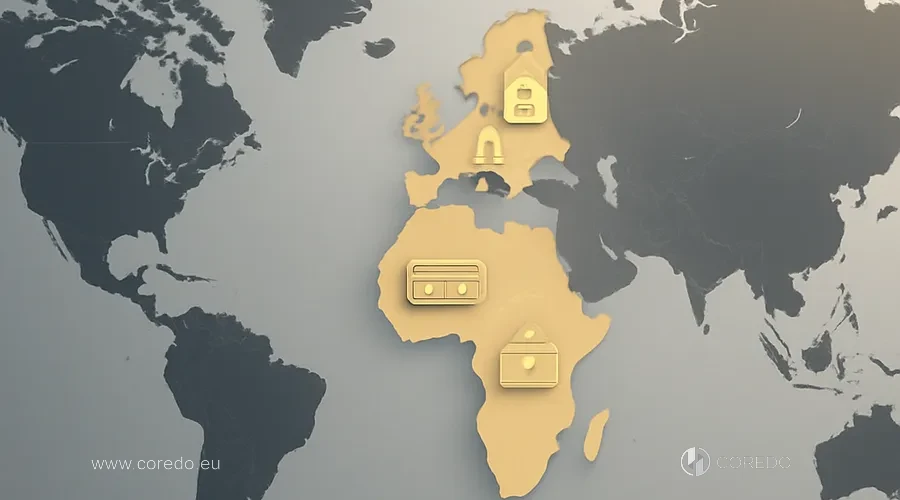
The phrase “which country is best to obtain an EMI license” is incorrect by itself. More accurate is “which jurisdiction is optimal for my business model, risk profile and scaling strategy.”
I always recommend entrepreneurs look at a country through five areas:
- regulatory risks of an EMI and the regulator’s risk appetite
- How does the regulator respond to new business models?
- How often do the rules change?
- What is the supervisory practice (frequency of inspections, tone of communication, predictability of decisions)?
- Minimum capital for an EMI and capitalization requirements
- Initial capital: typically €350,000 for a classic EMI model in the EU.
- Ongoing capital adequacy: methodology for calculating capital against transaction volumes and risks.
- You need not only a formal amount but a deliberate model: where you will hold the capital, how to present it under IFRS, how the capital structure will change as you grow.
- Substance requirements for an EMI (office, staff)
- Real business presence: local office, employees, resident directors.
- Role of the local team: who actually makes decisions, who is responsible for compliance, risk management, IT.
- IT requirements for an EMI license
- compliance with requirements for ICT and security risk management;
- architecture, redundancy, disaster recovery plan;
- management of cyber and operational risks of an EMI, working with outsourcing and cloud providers.
- Tax aspects and the group’s overall structure
- compatibility of the country with your flows (B2B, B2C, cross‑border payments);
- double taxation treaties;
- the jurisdiction’s impact on investors’ valuation of the project and future funding rounds.
COREDO’s task in such projects is not simply to “register” but to help build a structure that will withstand scrutiny from the regulator, the auditor and investors simultaneously.
Jurisdictions for an EMI license: where and for whom
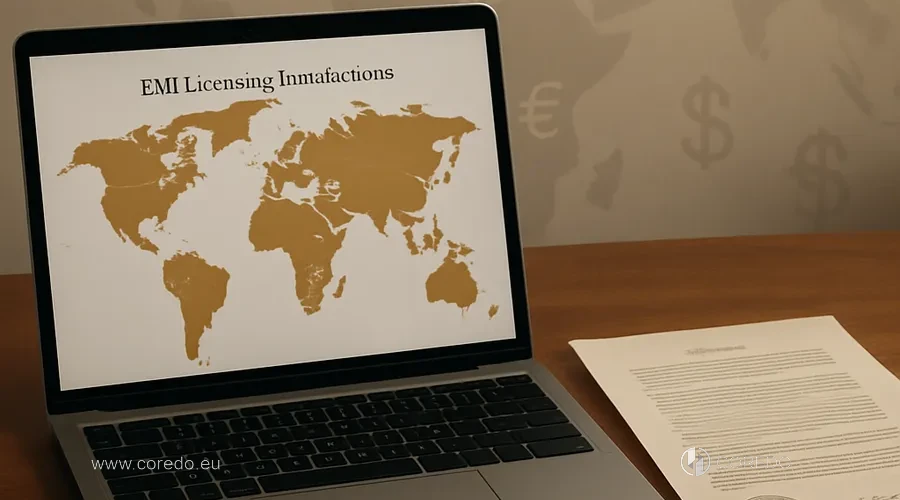
Below: not a “country ranking”, but typical scenarios that I see in projects coming to COREDO.
EMI license in Lithuania
Lithuania has long become a magnet for fintech projects oriented to the EEA. For many international players, an EMI license in Lithuania is a practical way to enter the European market with predictable timelines and transparent requirements.
When this country makes sense:
- EMI license passporting across the EEA is critical for you;
- you are building a product focused on the EU, but the team is distributed across different countries;
- you are ready for serious work on IT and risk management: the regulator pays close attention to ICT, operational risks and safeguarding.
In practice, the COREDO team pays especially close attention to Lithuanian projects regarding:
- the three‑year business plan and stress‑testing of the model;
- IT architecture: redundancy, incident monitoring, logging, change management;
- AML/KYC model: how the risk‑based approach is reflected in procedures and IT systems.
EMI licence in Ireland
An EMI license in Ireland is most often considered by more mature projects and groups that are building a European hub.
Key features:
- high requirements from the Central Bank of Ireland for the governance structure, fit & proper management, and independent control functions;
- a strong focus on compliance for the EMI provider: AML, risk management, internal audit;
- increased attention to business model sustainability and long‑term viability.
I often see teams underestimating the cost of compliance in Ireland: this includes not only in‑house specialists, but also external consultants, auditors, and the schedule of regular checks. The reward for this is a high level of market and investor trust.
EMI license in the Czech Republic
Czechia appeals to those looking for a balance between operating costs, the level of regulatory oversight, and the ability to work with clients from different European countries.
Features:
- a straightforward infrastructure for company registration and establishing substance;
- reasonable requirements for local presence and governance;
- the possibility to combine an EMI license with operational activity in Central Europe.
Client case: the COREDO team supported a project that considered EMI in Lithuania versus EMI in Czechia. In the end the strategy split: Lithuania — for scaling a B2C product across the EEA; Czechia — for the operational back‑office, development and part of the B2B direction. This is a scenario when one country for an EMI license is not the only answer.
EMI license in the UK: FCA requirements
An EMI license in the UK is the choice of those who consciously accept a high level of regulatory supervision by the FCA, expecting in return a strong brand and access to the British ecosystem.
What is important to consider:
- the FCA’s requirements for governance, risk management, and transparency of the beneficiary structure are especially detailed;
- a lot of attention is paid to outsourcing and service providers for EMIs, including cloud solutions;
- requirements for cybersecurity, incident reporting and IT resilience are being strengthened.
For an international project focused on Europe and Asia, it makes sense to consider the UK as part of a broader structure rather than the sole entry point.
Mauritius: EMI license for an offshore setup
An EMI license in Mauritius raises many questions among entrepreneurs: «how reliable is it to build an international fintech business based on such a license?»
I’ve seen successful cases where Mauritius:
- was used as a hub for international settlements outside the EEA;
- was combined with a European structure (for example, Lithuania / Ireland) to serve clients in the EU;
- allowed optimizing tax burden and group structure while meeting substance requirements.
Key point: EU EMI versus EMI in Mauritius: it’s not “which is better”, but “which markets do you serve, which jurisdictional risks are you willing to accept, and how do your investors assess it”. In projects of this type the COREDO team always models not only the regulatory picture, but also the risk‑adjusted ROI: taking into account compliance costs, potential correspondent bank restrictions and perception by partners.
Problems of the original headline:

- Unnecessary jargon (‘Typical’, ‘bottlenecks’)
- Sounds like an academic paper, not a search query
- Contains 9 words, which exceeds the recommendation
Bottlenecks in EMI licensing
To reduce the risk of refusal to grant an EMI license, I always ask clients to honestly assess three areas before approaching the regulator.
Ownership structure and beneficiaries
The regulator pays close attention to:
- transparency of beneficial ownership;
- sources of funds (source of funds / source of wealth);
- the history and reputation of shareholders and directors (fit and proper test).
Complex multi-level structures without a clear economic rationale increase EMI regulatory risks in any country. At COREDO we often start with “clean-up” of the structure: removing unnecessary layers, putting corporate documents in order, and preparing justification for the ownership chain.
Business plan and revenue model
For the regulator it’s important not only to see a three-year financial plan, but also to understand:
- how you earn (subscription, commission, interchange income, FX margin, B2B fee);
- how you manage regulatory risk (for example, high-risk segments, cross-border payments);
- what will happen to the company under stress scenarios: loss of a key partner, an increase in chargebacks, regulatory changes.
The COREDO team practices stress-testing business models for an EMI license: we model several scenarios and see how capital, liquidity and compliance costs change.
AML/KYC and a risk-based approach
AML/KYC procedures for an EMI provider are where regulators most often raise additional questions. Typical issues:
- declarative policies without a description of the real process;
- lack of linkage between the client risk map and triggers in the IT system;
- an unreasonably lenient or, conversely, excessively strict approach to high-risk segments.
I see entrepreneurs worry that strong risk-based AML will “kill conversion”. In practice, a well-designed approach allows:
- to segment customers by risk and build different KYC pathways;
- to use data providers and automation to speed up the low-risk flow;
- to keep a “manual mode” and enhanced Due Diligence for high-risk.
COREDO regularly helps fintech companies balance AML requirements for EMI companies and marketing KPIs: the goal is for compliance not to hinder growth, but to protect it.
IT architecture, cybersecurity and outsourcing from the regulator’s perspective
In European projects I increasingly see that the outcome of an EMI license application is decided at the level of IT and security architecture.
Key areas of regulatory focus:
- IT and security risk management for EMI: incident response policy, disaster recovery, business continuity;
- API architecture and operation logging;
- segregated environments (development / testing / production) and change management;
- use of cloud services and critical outsourcing.
When preparing for licensing the COREDO team goes through with the client in detail:
- the infrastructure diagram (servers, data centers, cloud providers, VPN, key services);
- data flows (including customer data, payment data, logs);
- backup model and RTO/RPO metrics.
Regulators need to see that you manage not only financial but also technical risks. This applies both to supervision of EMI’s cyber and operational risks, and to subsequent incident reporting.
Timeline and cost of an EMI license
To the question “how long does obtaining an EMI license in the EU take” I always answer with one word: it depends. But there is a realistic range.
With preparation taken into account:
- analysis of the business model and choice of jurisdiction;
- company structuring, substance, appointment of directors and key functions;
- preparation of the business plan, policies, procedures, IT descriptions;
- preliminary consultations with the regulator (where appropriate);
A full turnkey project in Europe typically takes 9–18 months, sometimes longer: if the model is complex or the group structure is non-trivial.
The cost of obtaining an EMI license consists of:
- minimum share capital (for example, the EMI minimum share capital of 350,000 euros for some EU countries);
- professional services (legal support for an EMI license, financial modeling, IT and AML design);
- expenses for substance: office, local team, directors, control functions;
- subsequent audit and an ongoing compliance function.
COREDO’s task is to give you in advance a transparent picture of TCO (total cost of ownership) and an estimate of ROI from obtaining an EMI license, taking into account the alternative: working through partner providers or the PI model.
How to reduce the risk of refusal by the regulator
The regulator doesn’t want to stop you from operating. Its job is to ensure you operate safely. It’s important to remember that.
In COREDO’s experience, I see several factors that dramatically reduce the risk of refusal:
- Early dialogue and transparency
- It’s easier to explain a complex element of the model at an early stage than to defend it after the official submission.
- Consistency of documents
- The business plan, policies, IT descriptions, governance structure, and partner agreements should be logically consistent. The regulator quickly spots inconsistencies.
- Realism
- Overly aggressive growth plans that are not backed by capital, team, and technology raise doubts. At COREDO we often temper expectations and rebuild the financial model.
- Readiness for oversight
- Regulatory oversight (on-site and off-site inspections, regular reports, audits) is not a “punishment”, but a normal part of life for a licensed company. It’s important to set up processes in advance, rather than reacting after the fact.
When it’s better to work with a partner instead of obtaining an EMI license
There are scenarios in which I honestly recommend not rushing to obtain a license:
- the product hasn’t yet achieved market fit;
- unit economics are unstable;
- the team is not ready to support full compliance, risk, and IT operations at the level expected of a licensee.
In such cases it makes sense to:
- start via a partner payment provider;
- simultaneously build your own infrastructure and prepare documentation;
- move to an actual EMI license when the business model and team have “matured”.
COREDO’s role here is not to sell a licensing service, but to help see the entire path: from an MVP to a fully licensed institution, with minimal regulatory and operational risks.
How to open an EMI structure with COREDO
During COREDO’s work as an international consulting partner for businesses I have become convinced: a successful EMI licensing project is always a synergy of lawyers, financiers, IT experts and AML specialists.
In practice, the COREDO team:
- analyzes the business model and helps choose a country where EMI regulatory risks in different jurisdictions align with your risk appetite;
- structures the legal entity (or group), builds a clear ownership structure and substance;
- prepares the complete documentation package for licensing: from the business plan and risk policy to AML/KYC procedures and IT descriptions;
- supports dialogue with the regulator, helps respond promptly to requests and adjust the model;
- sets up ongoing support: AML consulting, legal support, interaction with auditors, updating policies for regulatory changes.
My personal view is simple: having your own EMI license for an international fintech project is an investment in control over the product, margins and the pace of development. But only if you are prepared for serious, systematic work on regulatory, IT and operational risks.
If you are already thinking about which country is best to obtain an EMI license in, it means you are at the right stage of development. It’s important to turn this question from abstract to concrete: tailored to your business model, your team and your planning horizon. It is in this format that my team and I at COREDO are accustomed to working with clients for whom a license is not a goal, but a tool for long-term growth.
























